Here’s an honest look at the challenges of caring for an elderly parent and 6 things to make the process of being a caregiver a little bit easier.
It is incredible to me how one blink-of-an-eye moment can drastically impact your life. Since our car accident two weeks ago we have found ourselves dealing daily with the aftermath. Beyond the physical pain, there have been claims to file, insurance adjusters to talk to, paperwork to fill out, statements to make, prescriptions to fill, doctor visits to attend, and many, many conversations with our girls about what happened. My husband has led the charge, navigating this sometimes sticky process with wisdom and kindness and compassion. He is taking care of his girls, and we are all recovering well.
While my disability at this point is pretty minor, it has reminded me once again of just how taxing the role of caregiver can be. A few years ago, when our youngest daughter Annie was just five months old, my elderly mother-in-law Marie came to live with us because she was no longer able to live on her own. Already mired in the day-to-day chaos of caring for a colicky infant and an active toddler, we were woefully unprepared for this phenomenon called “Sandwich Years,” a time where you have both children and parents to care for.
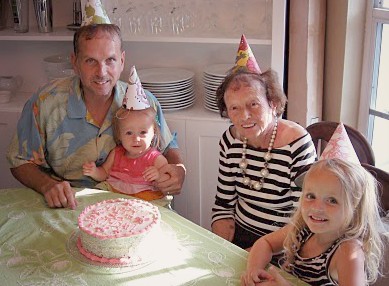
Hindsight is 20/20, but looking back, I truly wish we would’ve been a little more prepared for the challenges of being a full-time caregiver. I loved my mother-in-law and desperately wanted her to be a part of my children’s life. I wanted them to grow up knowing her and having a close relationship. I thought that the benefits of having her live with us would far outweigh any detriments. There was so much we didn’t know, so much I wish someone with more experience could have had told us.
6 Things No One Told Us About Being a Caregiver
If I could do it again, these are the six things I most wish I would’ve known:
You will have to make hard choices
We didn’t realize, going into it, how many difficult choices would come up. There were an endless slew of medical decisions, financial decisions, and quality of life decisions that constantly needed to be made. Sometimes what Marie wanted to do was at odds with what everyone else wanted her to do; sometimes we were unable to sway her towards a decision we knew was best, causing frustration and resentment. There were many times we couldn’t convince her to make a decision at all.
I truly wish we would’ve had the forethought to sit down with Marie ahead of time, before it was too late, and address some of the end-of-life issues that are so hard to talk about. I wish we would’ve been brave enough to have that conversation. I wish we would’ve been able to agree on a plan of action, to determine what our priorities were and to find out, from the options that were available, what she really wanted most of all. I wish we would’ve had medical directives in place from the get-go, along with power of attorney for both financial and medical matters. We did get them in place eventually, but not before we caused ourselves a lot of undue heartache.
Being a caregiver to an elderly parent is nothing like having another kid
Sometimes kind-hearted people, in an effort to be sympathetic, would say, “wow, caring for your mother must be like having a third child.” We would smile and nod in agreement because, really, what else can you do when someone is trying to be nice? But the truth was that having an an elderly adult to care for was nothing like having a toddler. My mother-in-law had lived a whole life before I was even born. She was set in her ways–and rightfully so.
She was extremely hard of hearing, which meant communication could be frustrating and difficult and LOUD, but she was still capable of having an adult conversation. She had adult feelings too, which meant if we simply went about our daily routine without engaging her–because engaging her took a lot of effort and yelling that I didn’t always have the energy or patience for-she would feel neglected and ignored. Because she didn’t hear well she was often separated by a wall of silence, even while in the same room. This often prevented her from being a part of our normal family life and dialogue. She required care, but a totally different type of care, managing medications, arranging doctor’s visits, trying to convince her to try a hearing aid, and helping her maneuver around the house.
Caregiving can be embarrassing and uncomfortable
There were sometimes moments in the course of the day that made us cringe, moments related to a loss of modesty and increasing difficulty with bodily functions. We had always loved to entertain, but because we couldn’t predict how or when those embarrassing moments would happen, we stopped inviting people over. In retrospect, perhaps we should’ve been a little more laid back, realizing that those things happen, but at the time it just felt….weird. Having someone live in your house sometimes means seeing and hearing more than you ever wanted to.
Your relationships will be strained
Caregiving is often a thankless job, and the effects of that can cause a serious strain on all your relationships. During that time Chuck and I were often stretched to the max, and with no one else to take it out on, we lashed out at each other. We were more easily frustrated with our kids, and often frustrated with Marie as well. There were times where she seemed equally sick of us, and especially of the kids. I had hoped for a closer relationship, but I forgot that sometimes grandparents need a little space from the constant neediness of kids. Frankly, we all needed a little space from each other sometimes, and often there was just no place to go.
Our outside relationships were strained as well. We were frustrated and resentful of family members who had no idea what we were going through. Most of our friends just couldn’t relate to our stage of life, and one by one they disappeared too. Had we known better, we would’ve joined a support group of other caregivers, but I think maybe at the time we were too proud & stubborn to admit we couldn’t handle it all on our own.
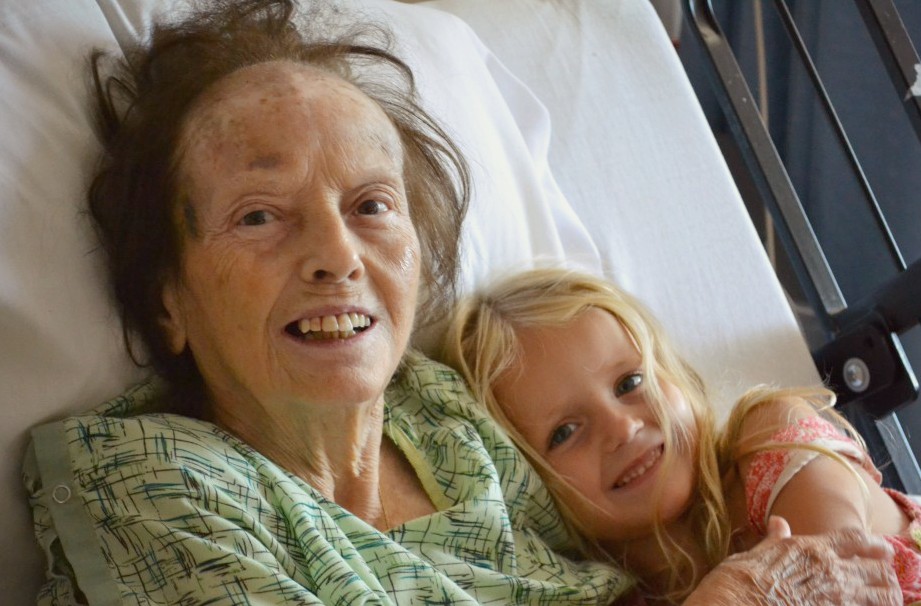
A doctor’s job is to worry about prolonging life, not quality of life
That is an important distinction to remember, and one that didn’t occur to us until it was too late. Don’t get me wrong, all the doctors who helped care for my mother-in-law were kind and compassionate, and truly concerned for her well-being. But their first concern was always dealing with the physical concerns that would prolong her life as long as possible–managing her blood pressure and her kidneys and her diabetes. It meant lots and lots of pills and tests and doctor’s visits, and then later, after she had a bad fall and ended up in the hospital, even more extraordinary measures to get her “well” again.
Had we the chance to do it over, I think we would’ve looked at the situation much differently. Our primary concern would’ve been making her final years and months as enjoyable and comfortable as possible, without worrying so much about prolonging her life as long as we could. At the very least, we would’ve realized that our job as caregivers was to advocate for quality of life, knowing that the doctors were approaching her care from a different perspective.
You will need a break
After living with us for seven months, my mother-in-law decided on her own that she would like to move to a nearby assisted living facility. It wasn’t until someone else was sharing the responsibility for her care that we realized how much we had needed the break. Being a full time caregiver is at times difficult and stressful, especially when you add kids and the rest of life’s demands into the mix. Sometimes in the midst of the daily grind it is hard to see the forest through the trees, but had we known how desperately we needed to give ourselves a break, perhaps we would’ve tried a little harder to find respite care.
Looking back, I now realize we entered our caregiving situation with a blind naivety that ended up causing problems that may have been avoidable. I am so very thankful that we managed to resolve them, and that we were able to maintain a close and loving relationship with my very dear mother-in-law to the very end. I am also so grateful that she was once again able to enjoy spending time with her granddaughters. She was a wonderful woman with an amazing heart, and I still miss her a lot.
To recap, here are the 6 things that no one told us about being a caregiver:
- You will have to make hard choices
- Being a caregiver to an elderly parent is nothing like having another kid
- Caregiving can be embarrassing and uncomfortable
- Your relationships will be strained
- A doctor’s job is to worry about prolonging life, not quality of life
- You will need a break
My hope is that sharing our experience–and the lessons we learned–might help those of you who are caregiving now, or will be in the future.
Other helpful resources:
- Yes, You CAN Get Rid of That! How to Declutter Without Feeling Guilty
- 48 Life Skills Everyone Should Learn
- How to Raise Grateful Kids in a Self-Centered World
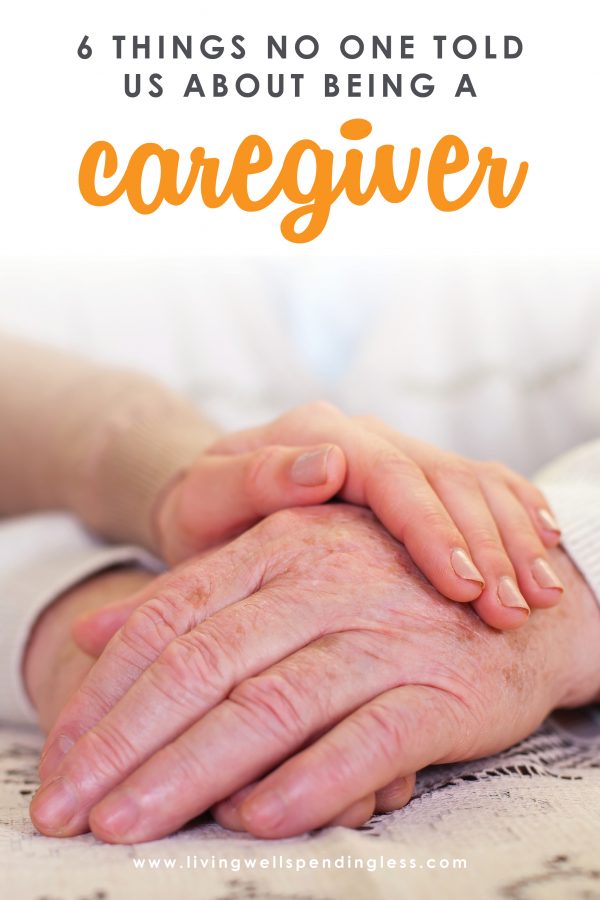
TAKE BACK CONTROL OF YOUR HOME LIFE
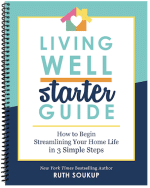 Ever feel like you just can't keep up? Our Living Well Starter Guide will show you how to start streamlining your life in just 3 simple steps. It's a game changer--get it free for a limited time!
Ever feel like you just can't keep up? Our Living Well Starter Guide will show you how to start streamlining your life in just 3 simple steps. It's a game changer--get it free for a limited time!
If you love this resource, be sure to check out our digital library of helpful tools and resources for cleaning faster, taking control of your budget, organizing your schedule, and getting food on the table easier than ever before.

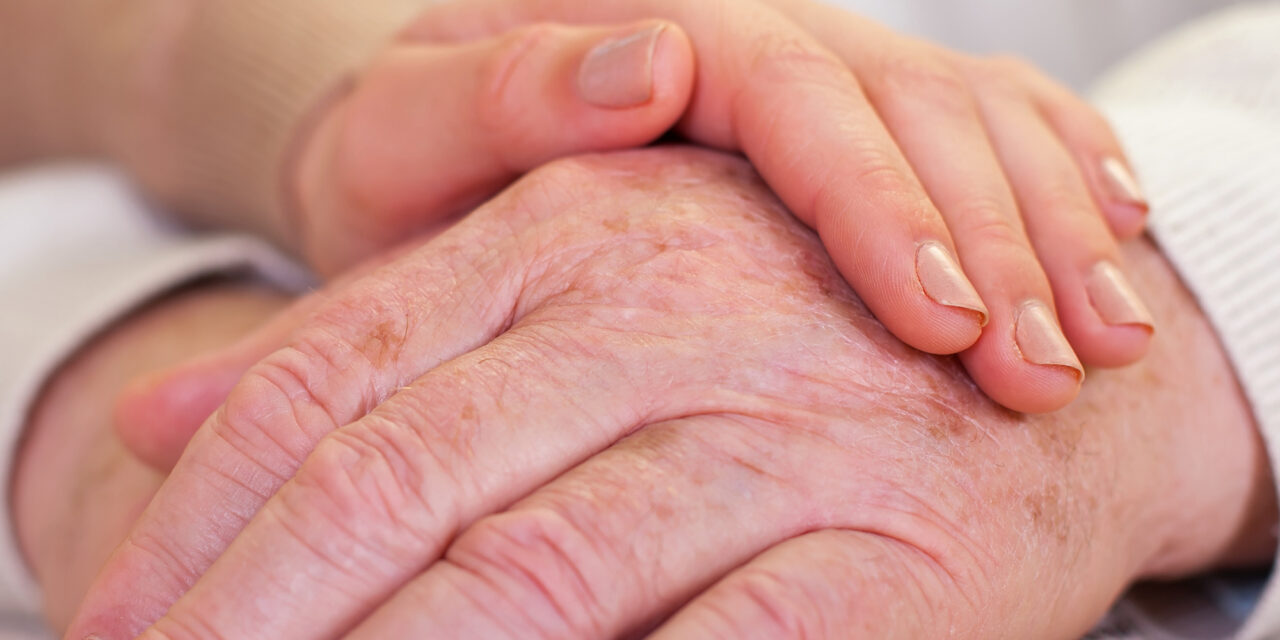
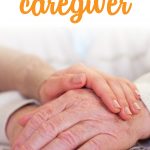
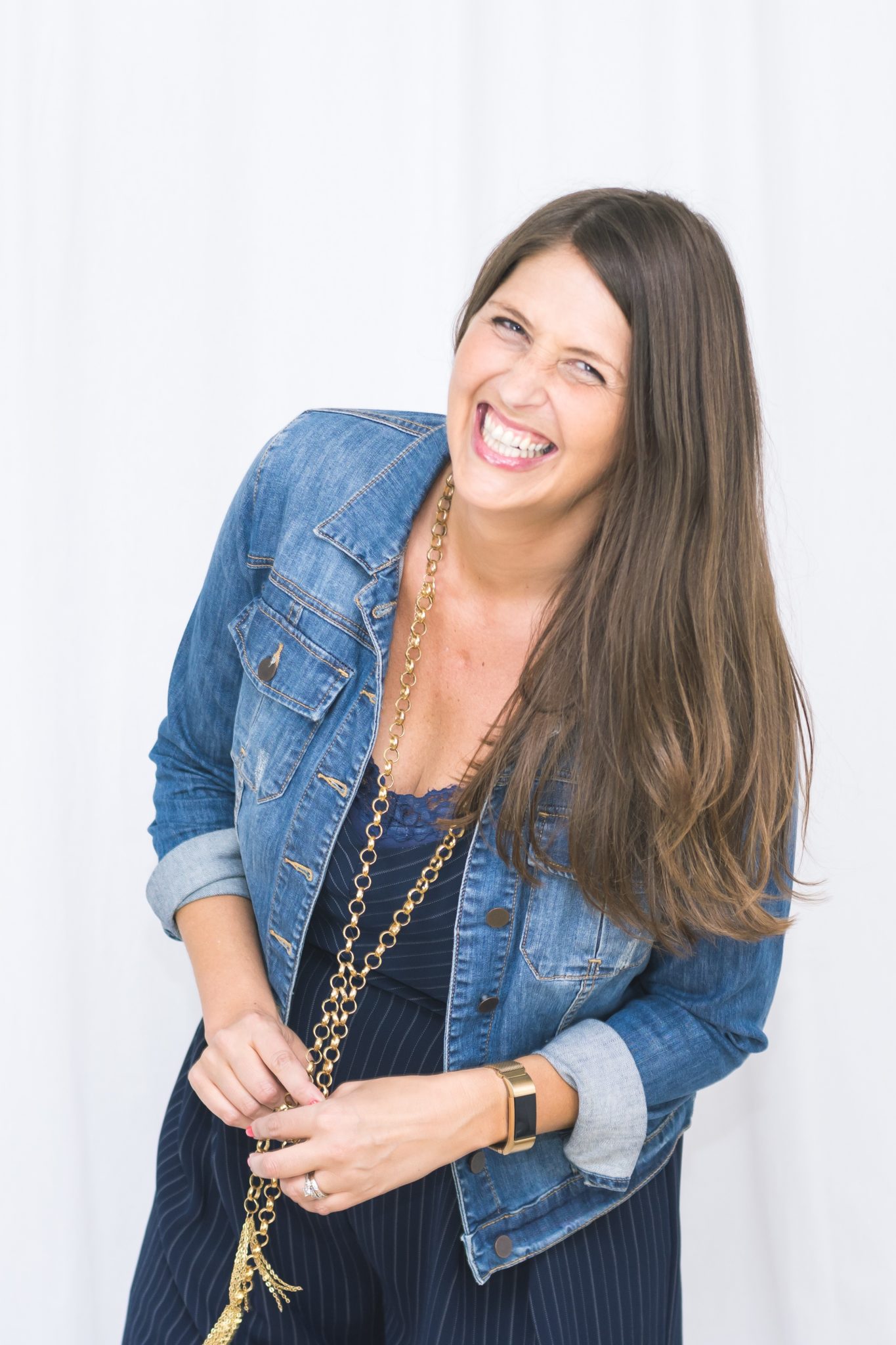
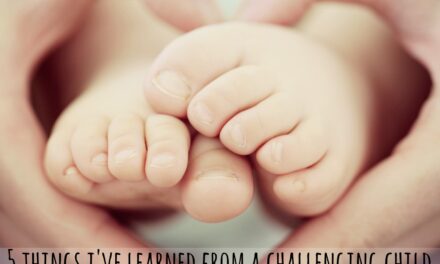
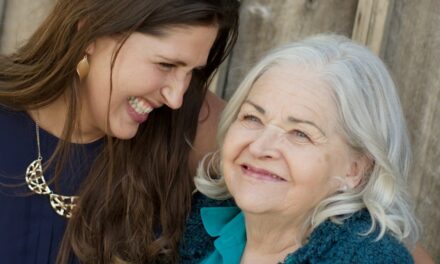



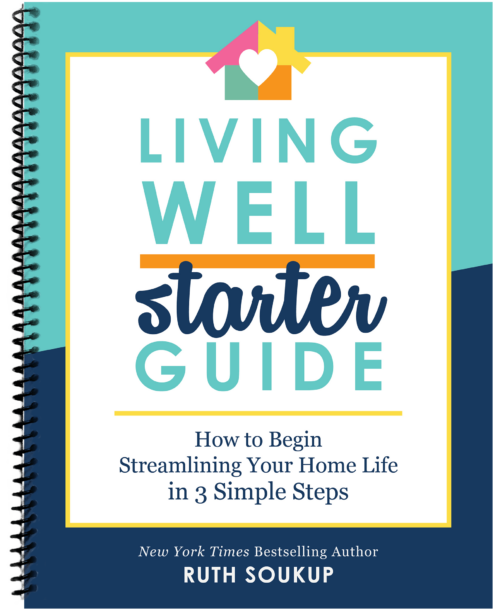

I want to tell you about a book that changed my life as a caregiver to my husband for over forty years. It is: Being Mortal – Medicine and What Matters in the End by Atul Gawande. Atul Gawande is a surgeon and this book teaches what questions you should ask doctors about medical treatment for your loved ones. It changed my life! Whether you are caring for a aging parent or spouse, this book will help you. I made our primary doctor read it and now she understands about the medical choices we make. Most libraries have this book.
Thank you so much Dee for the resource. I will need to check it out. 🙂
You made a good point that providing a better quality of life is an important aspect of being a caregiver. One of my cousins would like to know how to become a caregiver soon because she thinks it might be her calling in life. Volunteering in retirement homes made her realize that it comes naturally for her to provide care for others.
I have read so many, many online articles, blogs, etc., on the topic of being the caregiver to an elderly parent. This post by Ruth Soukup was spot-on. She nailed the big issues and big surprises that caregivers will have to face. Each and every one is true. I especially concur with the fact that you will, indeed, lose some friends. Hopefully, not the close ones, but you will not have time to nuture relationships like you used to and people will drift away. I would add seventh thing to Ruth’s list. It will be very difficult to not become stressed out and depressed.